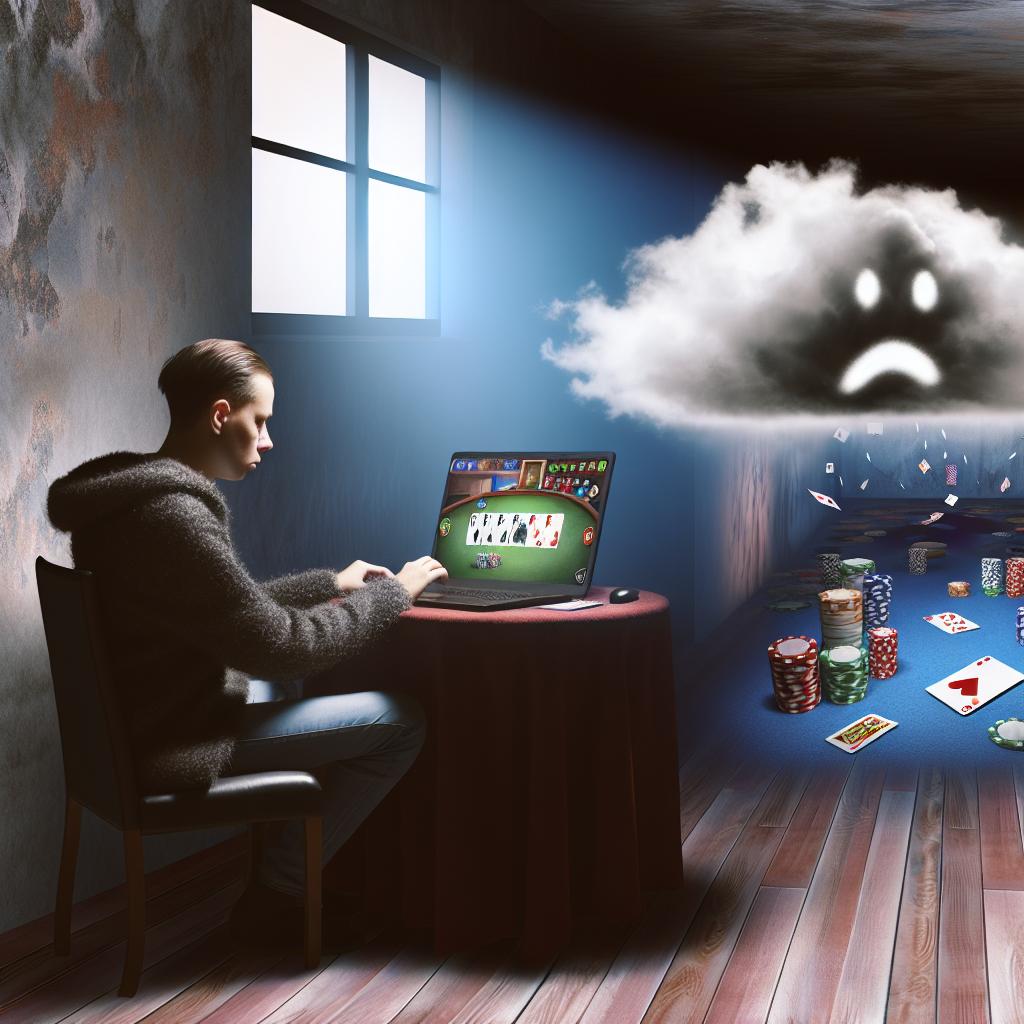Understanding Problem Gaming and Its Link to Depression
In contemporary discussions about mental health, the interplay between problem gaming and depression has garnered increasing attention. As more people adopt gaming as a primary source of entertainment, understanding its impact on emotional and social well-being becomes ever more essential. Awareness of how digital gaming can affect mental health has grown, making this a critical area for further research and intervention.
Defining Problem Gaming
To delve into this issue, we must first clearly define problem gaming. Often known as gaming disorder, it is primarily indicated by an inability to regulate participation in video games. Players afflicted by this disorder frequently allow it to overshadow other interests and daily responsibilities, yielding numerous negative outcomes. The World Health Organization (WHO) officially recognized this condition as a behavioral addiction in its International Classification of Diseases (ICD-11), underscoring its significance as a mental health concern.
Symptoms and Identification
Recognizing problem gaming involves assessing specific symptoms, typically over at least a year. Key signs include:
– Individuals failing to meet personal, familial, or social duties due to gaming.
– A consistent inability to lessen time spent on games, even with an understanding of its adverse consequences.
– Recurrent gaming behavior that impedes educational or professional activities.
These symptoms highlight the disruptive nature of problem gaming, necessitating an attentive approach for early detection and intervention.
Depression and Its Connection to Gaming
Depression, a pervasive mood disorder characterized by persistent sadness and disinterest in activities, intersects with problem gaming in complex ways. Several factors connect these two conditions, demanding a nuanced understanding.
Mental Health Correlations
Excessive gaming has the potential to amplify the symptoms associated with depression. This correlation arises from a few notable aspects. Players who dive deeply into gaming often experience a decline in physical activity. Similarly, poor sleep hygiene and disrupted social interactions are prevalent among those who excessively game, exacerbating depressive symptoms.
Additionally, for individuals already grappling with depression, gaming may serve as an escapism form, potentially leading to a negative cycle of isolation. As gamers delve further into the virtual world, their real-world relationships and mental state can suffer, creating a dire need for effective interventions.
Escapism and Coping Mechanisms
Gaming offers an escape from reality, often providing feelings of relief or accomplishment. However, when used as the principal coping strategy for managing stress or depressed feelings, it may produce harmful effects. Although the temporary distraction gaming provides can momentarily alleviate symptoms, it generally fails to address the core issues contributing to the individual’s depression. Such overreliance on gaming renders underlying problems unresolved, possibly deepening the depressive state over time.
Intervention and Support
Addressing this intertwined issue requires a comprehensive strategy that encourages healthier gaming practices alongside amplified mental health support.
Treatment Options
To effectively combat the dual challenges of problem gaming and depression, several treatment strategies may prove beneficial. Cognitive-behavioral therapy (CBT) is a practical option, targeting the modification of dysfunctional emotions and behaviors. CBT can help those affected restructure their thoughts towards healthier patterns, aiding in reducing gaming dependency and improving emotional resilience.
Support groups also play a crucial role, offering guidance and fostering a sense of community for those dealing with these challenges. Counseling services provide a space for one-on-one exploration of the motivations and triggers behind excessive gaming, equipping individuals with the tools they need for recovery.
Role of Education and Awareness
In promoting significant change, education remains a cornerstone. Efforts to increase awareness about the potential pitfalls of excessive gaming are vital. Educational initiatives targeted towards young gamers, parents, and educators must stress the importance of recognizing the early symptoms of problem gaming and associated mental health issues. By encouraging open dialogues about gaming practices and emotional wellness, these programs can lead to supportive environments that prioritize well-being over excessive digital engagement.
For further details and resources related to mental health, visit dedicated organizations such as the National Institute of Mental Health and Mental Health America. These platforms offer information and support for those seeking assistance.
Conclusion
While gaming provides a popular medium for relaxation and entertainment, it’s essential to acknowledge its potential repercussions on mental health when consumed excessively. Enhancing our understanding of problem gaming, paired with fostering healthier gaming habits, is imperative in reducing its negative influence on mental well-being. Keeping close tabs on gaming habits and seeking timely intervention can disrupt the continuation of gaming dependence, ultimately leading to improved overall health.
Awareness and educational efforts serve as pivotal steps towards early detection and prevention of problem gaming and its associated depressive outcomes. By approaching this issue with a balanced view, we aim for a paradigm where individuals can enjoy gaming without compromising their mental health and quality of life.

